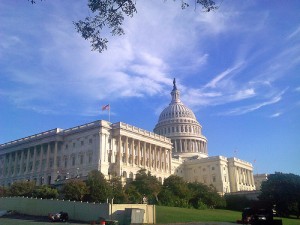 Among the favors federal law offers labor unions that it does not offer other groups is an exemption from employee “whistleblower” protection laws. If union employees or junior officials find financial misconduct and bring it to the attention of union officers, those employees can be fired, sometimes without explanation. (The particulars depend on the employees’ and officials’ contract status—as we have detailed, unions can negotiate as ruthlessly as the most hated capitalists against their own staffs.)
Among the favors federal law offers labor unions that it does not offer other groups is an exemption from employee “whistleblower” protection laws. If union employees or junior officials find financial misconduct and bring it to the attention of union officers, those employees can be fired, sometimes without explanation. (The particulars depend on the employees’ and officials’ contract status—as we have detailed, unions can negotiate as ruthlessly as the most hated capitalists against their own staffs.)
Heritage Foundation labor policy analyst James Sherk recounts one example of how this special-interest exemption chills the efforts of union employees to hold senior officers accountable for their fiduciary duties to union members:
[Federal law] did not protect Rian Wathen, Peggy Collins, and Herman Jackson. The former officers of the United Food Commercial Workers (UFCW) Local 700 in Indianapolis (allegedly) found their union president using union funds for his own benefit. They revealed this to their Local’s executive board. The next day the president fired them.
Congress now has the opportunity to give protections to these union officials. Rep. Matt Salmon has introduced H.R. 3637, a bill which would subject unions to the same whistleblower laws to which other private-sector employers are subject.
This bill and the provision of the Employee Rights Act that would remove legal protections given to otherwise criminal union threats clearly show that the federal government is sick of unions abusing their special privileges. It’s time for the government to protect union members against corruption cover-ups and against threats and intimidation and put labor unions on the same footing as other groups.



